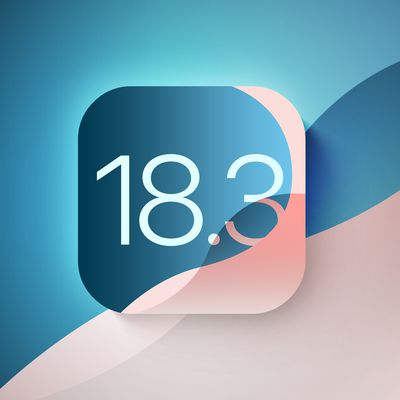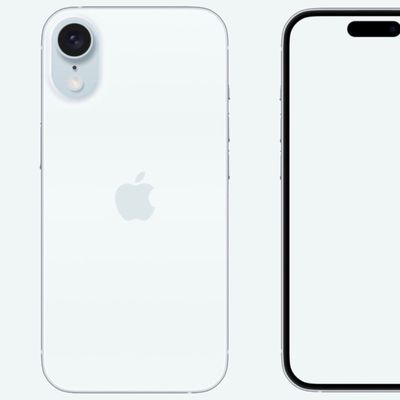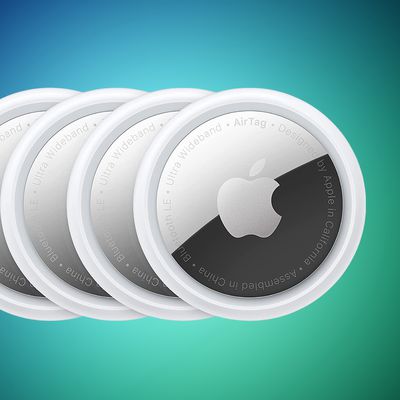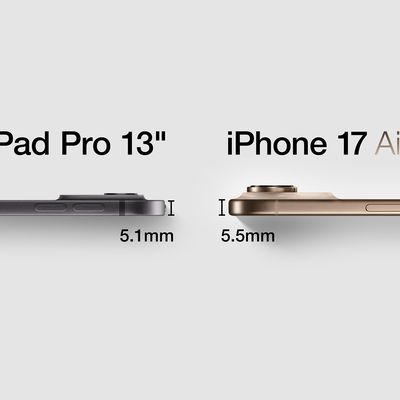Apple Granted Patent for 'In-Cell' Touchscreen Display Concepts
A newly-published Apple patent (via AppleInsider) reveals Apple's interest in so-called "in-cell" touchscreen technologies that have been rumored to be appearing in the next-generation iPhone. Adoption of in-cell technology, which integrates the touch sensors directly into the display rather than using a separate layer, is said to be one of the primary advances Apple is using to reduce the thickness of the iPhone to just 7.6 mm from the current 9.3 mm thickness.
The patent, which was originally filed for in June 2007 before the original iPhone even went on sale and is based on a provisional patent application dating all the way back to June 2006, highlights Apple's goals of reducing device size, complexity, and manufacturing costs just as it was attempting to revolutionize the mobile phone industry. The abstract begins:
Disclosed herein are liquid-crystal display (LCD) touch screens that integrate the touch sensing elements with the display circuitry. The integration may take a variety of forms. Touch sensing elements can be completely implemented within the LCD stackup but outside the not between the color filter plate and the array plate. Alternatively, some touch sensing elements can be between the color filter and array plates with other touch sensing elements not between the plates.
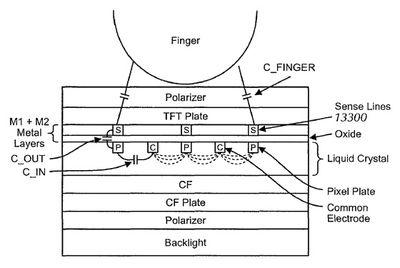 One of a number of Apple-proposed concepts for in-cell touchscreens
One of a number of Apple-proposed concepts for in-cell touchscreensApple's extensive patent with 85 claims and 107 different figures covers a host of concepts for how touch sensors could be integrated into LCD panels, including both the overall ideas as well as manufacturing processes that could be used to build the displays.
Popular Stories
iOS 19 is still around six months away from being announced, but a new leak has allegedly revealed a completely redesigned Camera app.
Based on footage it obtained, YouTube channel Front Page Tech shared a video showing what the new Camera app will apparently look like, with the key change being translucent menus for camera controls. Overall, the design of these menus looks similar to...
Apple on late Saturday removed TikTok from the App Store in the U.S., and it has now explained why it was required to take this action.
Last year, the U.S. passed a law that required Chinese company ByteDance to divest its ownership of TikTok due to potential national security risks, or else the platform would be banned. That law went into effect today, and companies like Apple and Google...
Apple today adjusted estimated trade-in values for select iPhone, iPad, Mac, and Apple Watch models in the U.S., according to its website.
Some values increased, while others decreased. The changes were not too significant, with most values rising or dropping by $5 to $50.
We have outlined some examples below:
Device
New Value
Old Value
iPhone 15 Pro Max
Up to $630
U ...
Apple provided the third beta of iOS 18.3 to developers today, and while the betas have so far been light on new features, the third beta makes some major changes to Notification Summaries and also tweaks a few other features.
Notification Summary Changes
Apple made multiple changes to Notification Summaries in response to complaints about inaccurate summaries of news headlines.
For...
iOS 19 will not drop support for any iPhone models, according to French website iPhoneSoft.fr.
The report cited a source who said iOS 19 will be compatible with any iPhone that can run iOS 18, which would mean the following models:
iPhone 16
iPhone 16 Plus
iPhone 16 Pro
iPhone 16 Pro Max
iPhone 15
iPhone 15 Plus
iPhone 15 Pro
iPhone 15 Pro Max
iPhone 14
iPhon...
A new iPhone SE is widely rumored to launch this year, and the device has potentially been confirmed today by known leaker Evan Blass.
In a private social media post, Blass shared an image of what appears to be source code mentioning an iPhone SE (4th Gen), which casts doubt on the alternative "iPhone 16E" name rumored for the device. However, the name in the source code could be a...
After a four-year wait, a new AirTag is finally expected to launch in 2025. Below, we recap rumored upgrades for the accessory.
A few months ago, Bloomberg's Mark Gurman said Apple was aiming to release the AirTag 2 around the middle of 2025. While he did not offer a more specific timeframe, that means the AirTag 2 could be announced by the end of June.
The original AirTag was announced...
For the last several months, we've been hearing rumors about a redesigned version of the iPhone 17 that Apple might call the iPhone 17 "Air," or something along those lines. It's going to replace the iPhone 17 Plus as Apple's fourth iPhone option, and it will be offered alongside the iPhone 17, iPhone 17 Pro, and iPhone 17 Pro Max.
We know the iPhone 17 Air is going to be super slim, but...






